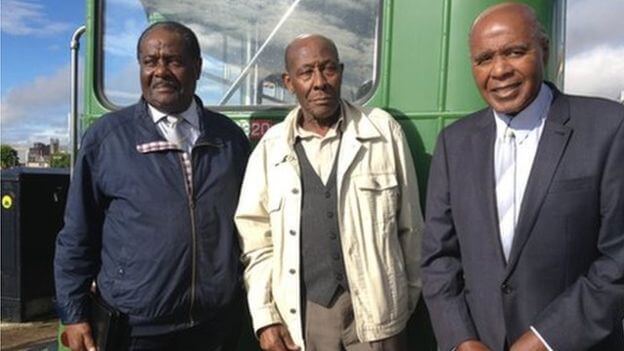The Bristol Bus Boycott in 1963 came about because the Bristol Omnibus Company, who ran the bus services in Bristol, refused to hire black or Asian people as bus workers. Like many cities at the time, there was lots of discrimination against black and Asian people.
The boycott
To stop the discrimination, four Indian men – Roy Hackett, Owen Henry, Audley Evans and Prince Brown – founded an organisation called the West Indian Development Council. Owen met Paul Stephenson, who the group decided would be a perfect spokesman. They led a group that encouraged people to boycott Bristol’s buses until they dropped their racist policy.
The boycott gained attention from people across the UK and the world. Various church groups and the High Commissioners of the two African countries Trinidad and Tobago expressed their support for the boycott.
Why were these policies introduced in the first place?
At the time, some white people didn’t like the idea of black and Asian people working in the same jobs as them. However, black and Asian people weren’t stopped from working in canteens or workshops.
Another reason was because workers thought that allowing black and Asian people to work on buses would reduce their wages. At the time, wages were low and bus workers relied on overtime shifts to pay their bills.
The result of the boycott
A group of people including a union, local politicians and the Bishop of Bristol, tried to resolve the dispute. A meeting of 500 bus workers was then called. They agreed to end the racist policy on 27th August 1963.
Two years later, in 1965, Parliament passed the Race Relations Act. It was a law that made racial discrimination in public places illegal. In 1968, this law was extended to end racial discrimination when cover buying and selling property and getting a job.
In 2009, the three men that led the boycott, Paul Stephenson, Guy Bailey and Roy Hackett were awarded OBEs. OBEs are an award given to people who make a great contribution to society.
